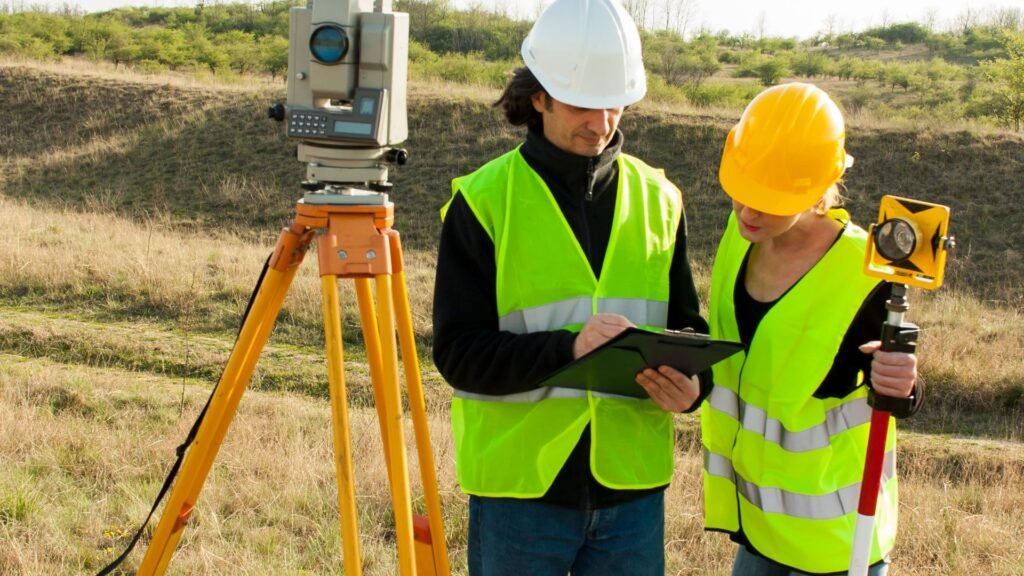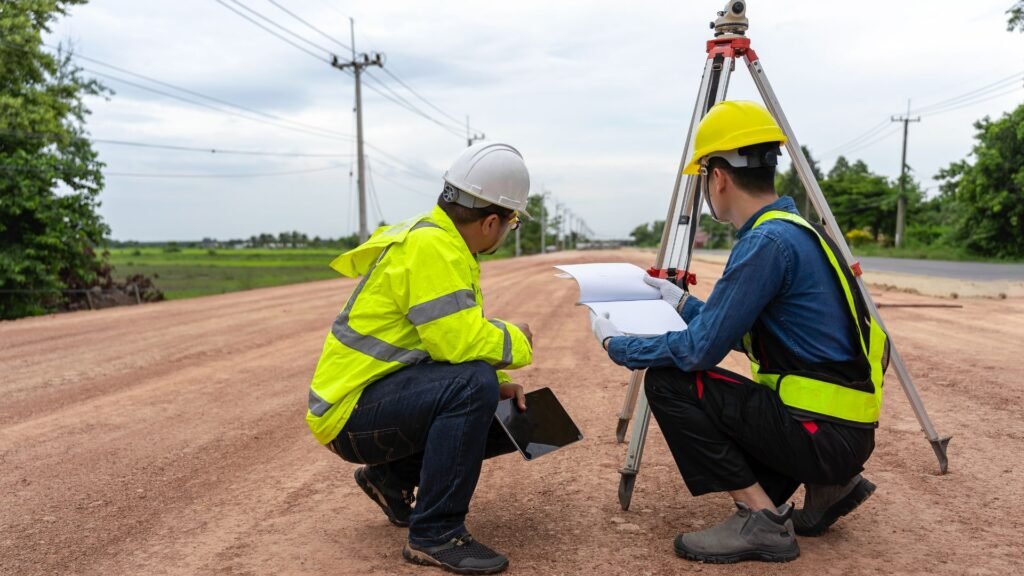Welcome to your ultimate guide on pursuing a quantity surveyor course in NZ—a smart move if you’re considering a career that blends numbers, strategy, and the ever-evolving world of construction. Quantity surveyors play a crucial role in making sure building projects stay on budget, on time, and within scope, and with New Zealand’s booming construction industry, there’s never been a better time to explore this in-demand profession. In this guide, we’ll walk you through what quantity surveying is, why studying it in New Zealand is a great choice, the top courses available, career opportunities, and everything you need to confidently take your next step toward this rewarding path.
A quantity surveyor course in NZ prepares students for a career in construction cost management, budgeting, and project planning. Offered by institutions like Massey University, Unitec, and Otago Polytechnic, these courses range from diplomas to bachelor’s degrees and teach essential skills in cost estimation, contract law, and project management. Graduates are in high demand across New Zealand’s growing construction and infrastructure sectors.
Table Of Contents
What Is A Quantity Surveyor?
If you’ve ever wondered who keeps massive construction projects from running over budget or ensures that everything from materials to labor is financially accounted for, that’s exactly where a Quantity Surveyor comes in. In simple terms, a Quantity Surveyor—often referred to as a QS—is the financial backbone of a construction project. They’re the professionals who make sure that building projects are not only well-designed and structurally sound but also cost-effective from start to finish.
Rather than swinging hammers or laying bricks, Quantity Surveyors work behind the scenes—yet play a critical role in the success of every build. They specialize in cost planning, which involves estimating how much a project will cost before it even begins. They also help manage budgets throughout the construction lifecycle, monitor expenditures, and ensure that all financial aspects are aligned with the client’s goals.
One of their key responsibilities includes contract negotiation and administration. This means they help draft contracts, resolve disputes, and ensure that everyone—from contractors to suppliers—sticks to the agreed terms. Their work involves close collaboration with project managers, architects, engineers, and contractors to keep the financial side of construction running smoothly.
Quantity Surveyors aren’t limited to just one type of workplace. You’ll find them employed across a wide range of sectors including construction companies, engineering consultancies, property development firms, and even government agencies involved in infrastructure projects. Some work in offices, others on-site—or a mix of both—depending on the size and nature of the project.
Quantity Surveyors are vital players in the construction world. They blend technical knowledge, financial expertise, and negotiation skills to bring big visions to life—on time and on budget. If you’re someone who enjoys problem-solving, working with numbers, and being part of large-scale projects without necessarily getting your hands dirty, quantity surveying might just be your ideal career path.

Why Study Quantity Surveying In New Zealand?
If you’re considering a career in construction, cost planning, or project management, enrolling in a quantity surveying course in New Zealand could be one of the best decisions you make. With a booming infrastructure sector, world-class education providers, and a welcoming environment for both local and international students, New Zealand offers a unique blend of academic excellence and real-world opportunity.
High Demand For Quantity Surveying Professionals In NZ
New Zealand is currently experiencing strong growth in the construction and infrastructure sectors, driven by population growth, housing shortages, commercial development, and government-backed infrastructure projects. As a result, skilled quantity surveyors are in high demand across the country. According to data from Careers and MBIE (Ministry of Business, Innovation and Employment), quantity surveying is considered a skill shortage occupation, meaning graduates have excellent employment prospects upon completing their studies.
In practical terms, this means that your qualification won’t just sit on a shelf — it will open doors. From residential housing projects to large-scale government infrastructure developments, quantity surveyors are needed to help manage costs, contracts, and timelines efficiently. Whether you’re looking for long-term job security or career progression, the opportunities in this field are vast and growing.
A Booming Construction And Infrastructure Sector
New Zealand’s construction sector has shown resilience and consistent growth over the past decade. Post-pandemic recovery efforts and government investment in infrastructure have accelerated demand for skilled professionals, especially in urban development, transportation, and civil engineering. Major cities like Auckland, Wellington, and Christchurch are hubs of ongoing development, with projects ranging from new housing and public transport systems to earthquake resilience and smart city innovations.
This active development environment provides a practical, hands-on learning experience for students studying quantity surveying. Many education providers offer internship opportunities or industry placements, allowing students to apply their classroom knowledge in real-world projects before they even graduate.
World-Class Education With Global Recognition
New Zealand is home to some of the best educational institutions in the Southern Hemisphere, known for their practical, industry-aligned programs. Institutions like Massey University, Unitec Institute of Technology, Otago Polytechnic, and Ara Institute of Canterbury offer specialized quantity surveying qualifications — from diplomas to bachelor’s degrees — that are recognized globally.
These courses are often accredited by respected professional bodies such as the New Zealand Qualifications Authority (NZQA) and may also align with international standards set by organizations like the Royal Institution of Chartered Surveyors (RICS). That means your qualification can open doors not just in New Zealand, but in countries like Australia, the UK, and the Middle East where quantity surveying is also in high demand.
What sets New Zealand’s education system apart is its focus on combining theoretical knowledge with real-world application. You’ll learn essential skills in cost estimation, project planning, building law, and digital tools like CostX — all while being mentored by experienced professionals.
A Safe, Inclusive, And Supportive Study Environment
Beyond the classroom, New Zealand offers an exceptional quality of life for students. It’s consistently ranked as one of the safest and most peaceful countries in the world. Whether you’re a local student or arriving from overseas, you’ll find a friendly, inclusive atmosphere where diversity is embraced.
International students, in particular, are supported through a range of services — from English language assistance and academic support to visa guidance and cultural integration programs. With its mix of stunning natural landscapes, modern cities, and welcoming communities, New Zealand offers a lifestyle that balances education, career preparation, and personal well-being.
Studying quantity surveying in New Zealand means gaining a globally respected qualification while building your career in a thriving, future-focused industry. With strong job demand, high-quality education, and a safe, multicultural learning environment, it’s no wonder more students are choosing to start their QS journey here.

Top Quantity Surveyor Courses In NZ
If you’re considering a future in construction cost management, New Zealand offers a range of high-quality quantity surveyor courses suited for school leavers, career changers, and professionals looking to upskill. Whether you’re starting from scratch or aiming to advance your expertise, there’s a course to match your goals. Below, we’ve outlined the top qualification levels available across respected institutions in New Zealand, along with key details like entry requirements, course duration, and subjects you’ll cover.
Diploma And Certificate Courses
One of the most popular entry points into the quantity surveying field in NZ is the New Zealand Diploma in Construction (Quantity Surveying). This program is offered by several well-regarded institutions, including.
- Unitec Institute of Technology (Auckland)
- Otago Polytechnic (Dunedin & Central Otago campuses)
- Ara Institute of Canterbury (Christchurch)
Course Highlights
- Duration: 2 years full-time (part-time options may be available)
- Entry Requirements:
- NCEA Level 2 or equivalent
- A minimum of 48 credits at Level 2 including English and Mathematics
- International students need an IELTS score of 6.0 (with no band lower than 5.5)
- Core Subjects:
- Construction Technology
- Measurement and Estimating
- Building Materials
- Cost Planning and Budgeting
- Construction Law
- Tendering and Procurement
These diploma-level courses are highly practical, often incorporating real-world projects and internship opportunities. Graduates are work-ready and can step into assistant or junior roles in construction and consultancy firms.
Bachelor’s Degrees
The Bachelor of Construction (Quantity Surveying major) is a more advanced and comprehensive program that prepares students for a wide range of career opportunities. It is available through.
- Massey University (Auckland & Wellington campuses)
- Ara Institute of Canterbury (Christchurch)
Course Highlights
- Duration: 3 years full-time
- Entry Requirements:
- NCEA Level 3 or equivalent
- University Entrance (UE) including literacy and numeracy
- Recommended subjects: Calculus, Physics, Economics, or Accounting
- IELTS 6.0–6.5 for international students
- Core Subjects:
- Advanced Cost Estimation and Budgeting
- Project and Resource Management
- Construction Economics
- Building Information Modeling (BIM)
- Sustainability in Construction
- Dispute Resolution and Contract Administration
Bachelor’s programs offer a mix of theoretical knowledge and industry-based learning. Many include workplace internships or final-year capstone projects, giving students a strong foundation to transition directly into mid-level roles or graduate programs.
Postgraduate And Master’s Options
For those who already hold a degree in construction, engineering, or a related area, several institutions offer postgraduate certificates, diplomas, or master’s degrees that focus on quantity surveying, construction law, or project management. While these are not as widely offered as undergraduate options, they can be a valuable way to deepen expertise or change career paths.
Typical Highlights
- Duration: 1–2 years depending on the level and study mode
- Entry Requirements:
- Bachelor’s degree in a relevant field
- Work experience in construction or a similar industry is often preferred
- IELTS 6.5+ for international applicants
- Focus Areas:
- Advanced Construction Economics
- Strategic Project Leadership
- Contract Law and Risk Management
- Sustainable Infrastructure Development
Institutions like Massey University and AUT (Auckland University of Technology) periodically offer advanced programs tailored to industry demand.
Whether you’re looking for a practical, fast-track qualification or a fully-fledged degree, New Zealand offers a variety of quantity surveyor courses to suit your career path. These programs are designed not just to meet academic standards, but to prepare you for real-world challenges in an evolving and high-demand industry. Before enrolling, consider your career goals, preferred study mode, and whether you’re more suited to a hands-on diploma or a research-driven degree. Either way, the journey toward a rewarding QS career in NZ starts with the right course.

What Skills Will You Learn?
When you enroll in a Quantity Surveyor course in New Zealand, you’re not just learning from textbooks—you’re building a real-world skill set that employers in the construction and infrastructure sectors actively seek. From day one, the focus is on practical, career-ready knowledge that you can apply on actual job sites, in office-based roles, or when managing projects across industries.
Here’s what you’ll actually walk away knowing by the time you complete your studies:
Budgeting & Cost Estimation
One of the most critical parts of a quantity surveyor’s role is managing money. You’ll learn how to estimate costs accurately, plan budgets for projects big and small, and forecast financial risks. Courses teach you how to assess material costs, labor expenses, and overheads, giving you the ability to make data-driven decisions that keep projects financially on track.
Construction Law & Contract Administration
Understanding contracts is just as important as understanding construction. You’ll be introduced to New Zealand construction laws, legal frameworks, and the tendering process. More importantly, you’ll develop the skills to manage and administer contracts between stakeholders, resolve disputes, and ensure compliance with legal and regulatory standards.
Project Management Basics
Quantity surveyors often work alongside project managers, so you’ll gain a solid foundation in project planning, scheduling, and resource coordination. You’ll learn how to contribute to key decisions, manage timelines, and oversee financial elements that impact overall project success. These skills are transferable to a wide range of roles beyond quantity surveying.
Communication & Teamwork
You’ll also build your interpersonal and communication skills, which are essential when working with clients, contractors, architects, and engineers. Whether you’re writing reports, presenting estimates, or leading a negotiation, being able to communicate clearly and professionally will set you apart in the workplace.
Use Of Tools Like CostX Or Buildsoft
Today’s construction professionals rely on digital tools, and you’ll get hands-on experience with industry-standard software like CostX and Buildsoft. These programs help automate tasks such as cost planning, takeoffs, and quantity tracking, allowing you to work more efficiently and accurately in real-world scenarios.
The Quantity Surveyor course in NZ equips you with a balanced mix of technical know-how, legal understanding, project leadership, and digital literacy. These aren’t just classroom concepts—they’re everyday tools you’ll use throughout your career to keep projects running smoothly and within budget. It’s about learning how to be valuable from the ground up, whether you’re working on a single residential build or a multi-million dollar infrastructure project.

Career Opportunities After Graduation
Graduating from a Quantity Surveyor course in NZ opens the door to a wide range of career opportunities in both the public and private sectors. Thanks to New Zealand’s growing construction and infrastructure industries, skilled quantity surveyors are in steady demand across the country. Whether you’re just starting your career or looking to specialize, you’ll find a variety of paths that offer both stability and growth.
Common Job Titles You Can Pursue
Once you’ve completed your course, you’ll be qualified to take on roles such as.
- Quantity Surveyor: Responsible for managing project costs from initial estimates to final figures, ensuring construction stays on budget.
- Cost Estimator: Focuses on forecasting the financial costs of materials, labor, and time involved in projects.
- Project Coordinator: Oversees specific aspects of construction projects, coordinating between contractors, suppliers, and clients.
- Contract Administrator: Manages contracts between stakeholders, ensuring all obligations are met.
- Construction Analyst or Consultant: Works in advisory roles, analyzing cost performance and project efficiency.
These roles are essential in making sure building and infrastructure projects run efficiently, within budget, and according to legal standards.
Industries That Hire Quantity Surveyors
One of the biggest advantages of studying quantity surveying is career flexibility. Graduates can work across various industries, including.
- Construction: From residential homes to large-scale commercial projects.
- Infrastructure: Roads, bridges, water systems, and public transport developments.
- Real Estate Development: Cost planning for housing developments, apartments, and commercial buildings.
- Civil Engineering: Supporting engineers in managing infrastructure projects.
- Government & Local Councils: Overseeing public works and community development.
With New Zealand investing heavily in infrastructure and housing to support population growth and economic recovery, these industries offer strong career potential for quantity surveying professionals.
Salary Expectations In New Zealand
Salaries for quantity surveyors in NZ vary depending on your experience, qualifications, and the region you work in. Here’s a general breakdown.
- Entry-Level (0–2 years): NZD $55,000 – $70,000 per year
- Mid-Level (3–5 years): NZD $70,000 – $90,000 per year
- Senior-Level (5+ years): NZD $90,000 – $120,000+ per year
Some experienced quantity surveyors working on large infrastructure projects or in senior consultancy roles can earn well above $120,000 annually. These figures can also increase if you gain international certifications like RICS (Royal Institution of Chartered Surveyors) or project management credentials.
Job Demand And Industry Growth
According to the New Zealand Ministry of Business, Innovation and Employment (MBIE) and Careers, quantity surveyors are currently listed as a “high-demand occupation“, especially in regions experiencing strong construction activity such as Auckland, Wellington, and Christchurch. Key indicators of growth include.
- Steady construction and infrastructure investment by both the government and private sector.
- A shortage of qualified professionals, particularly those with hands-on experience.
- Long-term employment prospects due to ongoing housing needs and infrastructure upgrades.
MBIE notes that opportunities for quantity surveyors are expected to remain strong over the next five to ten years, making it a future-proof career choice.
Completing a quantity surveyor course in NZ is more than just an academic achievement—it’s a stepping stone into a rewarding career with diverse job options, competitive pay, and long-term demand. Whether you see yourself managing budgets on-site or advising clients from an office, the skills you gain can take you in many directions, all backed by a solid foundation in one of New Zealand’s most critical industries.

How To Choose The Right Course
Choosing the right quantity surveyor course in New Zealand isn’t just about picking the first one that pops up on Google. It’s about finding a program that matches your career goals, fits your lifestyle, and gives you the tools to succeed in a growing, competitive industry. Whether you’re just leaving high school, switching careers, or upskilling, taking time to evaluate your options can make a world of difference.
Here are the key factors to consider when selecting the best course for your needs.
Accreditation Matters (NZQA, NZIOB, RICS)
One of the first things to look for is whether the course is accredited by a recognized authority. In New Zealand, this typically includes the New Zealand Qualifications Authority (NZQA), which ensures that the program meets national education standards.
Some programs may also be aligned with professional industry bodies such as.
- NZIOB (New Zealand Institute of Building): which supports construction professionals across NZ.
- RICS (Royal Institution of Chartered Surveyors): an international standard that adds credibility if you’re considering working abroad in the future.
An accredited course not only enhances your resume but also gives you peace of mind that you’re getting a quality education recognized by employers.
Choose a Mode of Study That Suits Your Life
Another major factor to consider is how you want to study. Institutions in NZ often offer flexible learning options, including.
- Full-Time: Ideal for school leavers or those who can commit to on-campus learning.
- Part-Time: Great for working professionals or parents who need to study around their schedule.
- Online or Blended Learning: Perfect if you’re located in a remote area or prefer the flexibility of learning from home.
Think about your daily routine, work commitments, and how you learn best. Flexibility can make or break your study experience, so don’t overlook it.
Location and Lifestyle
New Zealand offers a diverse range of campuses—from bustling cities like Auckland and Wellington to scenic regional centers like Dunedin or Christchurch. Each location offers a different lifestyle, cost of living, and access to job opportunities or internships. Ask yourself.
- Do you prefer a big city or a quieter town?
- Will you need to work part-time while studying?
- What’s the cost of living in that area?
Your location can directly impact your study-life balance and even your future employment network.
Graduate Support And Internship Opportunities
A great course doesn’t end at graduation—it helps you transition into the workforce. Look for programs that offer.
- Career services: CV writing, job interview coaching, and job boards.
- Internships or industry placements: These provide real-world experience and often lead to job offers.
- Strong alumni networks: Past graduates who stay connected and help open doors.
Programs that actively support students beyond the classroom are often the ones that produce confident, job-ready professionals.
Use This Mini Checklist To Evaluate Courses
Before making your final decision, use this quick checklist to compare your top options.
- Is the course NZQA-accredited?
- Are there links to professional bodies like NZIOB or RICS?
- Does the study mode (online, part-time, full-time) suit your lifestyle?
- Is the campus located in a city or region that fits your personal and professional goals?
- Does the program offer internships or industry placements?
- Are there graduate support services like career coaching and job placement?
If you can tick off most of these boxes, you’re likely looking at a course that will not only educate you—but set you up for long-term success.

What Students Say: Testimonials Or Case Studies
One of the most powerful ways to understand the true value of a quantity surveyor course in NZ is to hear directly from the people who’ve experienced it. Student testimonials and real-life case studies give an honest look into what it’s like to study quantity surveying—from the classroom experience to job placement and beyond.
Whether you’re a school leaver, a working professional considering a career change, or an international student exploring your options, reading about others’ journeys can offer both reassurance and inspiration.
Real Voices From The Classroom
“I wasn’t sure if quantity surveying was for me, but the support I received from my tutors and classmates made all the difference. The course was hands-on, and I learned how to use real-world software and tools. I landed a graduate role at a construction firm within three months of finishing.”
– Liam, Diploma Graduate from Unitec
“What surprised me most was how much I enjoyed the contract side of things. I always thought construction was just about bricks and concrete, but learning the legal and financial parts was eye-opening. The industry placement was the highlight—it led directly to my first job!”
– Sarah, Bachelor of Construction (Quantity Surveying) at Massey University
These stories reflect what many students experience: engaging coursework, supportive learning environments, and valuable industry connections that help launch meaningful careers.
Career Growth Starts Here
A common thread in student feedback is how well-prepared they feel stepping into the workforce. Many express appreciation for the balance between theory and practical application in New Zealand’s quantity surveying programs. Courses often include site visits, real-world projects, and access to up-to-date industry tools like CostX and Buildsoft, all of which help students hit the ground running after graduation.
Some even highlight how the courses boosted their confidence in areas like communication and teamwork—essential soft skills in today’s construction industry.

Costs, Scholarships & Financial Aid
If you’re considering a Quantity Surveyor Course in New Zealand, understanding the costs involved — and the financial support available — is an essential part of planning your journey. The good news? New Zealand offers a variety of options to make studying more affordable and accessible for both domestic and international students. Whether you’re fresh out of high school, changing careers, or moving from overseas, here’s a full breakdown of what you can expect.
Tuition Fee Range
The tuition fees for quantity surveying programs in New Zealand vary depending on the qualification level and institution. On average.
- Diploma-level programs (such as the New Zealand Diploma in Construction – Quantity Surveying) cost between NZD $7,000 and $9,000 per year for domestic students.
- Bachelor’s degrees in Construction (with a Quantity Surveying major) typically range from NZD $7,000 to $8,500 per year for domestic students and NZD $22,000 to $32,000 per year for international students.
- Postgraduate or Master’s programs, where available, can cost upwards of NZD $25,000 annually for international students.
Keep in mind that these figures may not include additional costs like textbooks, software subscriptions (e.g., CostX), field trips, or equipment.
Student Loans And Allowances (For Domestic Students)
For New Zealand citizens and eligible residents, financial support is available through StudyLink, which offers.
- Student Loans: Cover tuition fees, course-related costs (e.g., laptops, books), and living expenses.
- Student Allowances: Weekly, non-repayable payments to help with living costs for qualifying full-time students, depending on age, income, and living situation.
Applying is simple through the StudyLink website, but it’s best to apply early — ideally, as soon as you’ve been accepted into your course.
Scholarships Available
Scholarships are a great way to reduce the financial burden of study, and many institutions in New Zealand offer generous funding opportunities. These may include.
- Merit-Based Scholarships: For students with strong academic performance.
- Equity or Access Scholarships: For students from underrepresented groups, such as Māori, Pasifika, and refugee-background learners.
- Industry or Employer-Sponsored Awards: Sometimes construction companies offer funding in return for future work placements or internships.
- Women in Construction Scholarships: Aimed at encouraging more women into the industry.
It’s a good idea to check with the specific institution you’re applying to, as each will have its own list of scholarships and eligibility criteria.
Part-Time Work Options During Study
Balancing work and study is a common way for students in NZ to support themselves financially. Here’s what you need to know.
- Domestic students can work part-time without restrictions, as long as it doesn’t interfere with academic commitments.
- International students on a student visa are allowed to work up to 20 hours per week during the semester and full-time during scheduled breaks.
- Typical student jobs include hospitality, retail, admin, or even paid internships in construction-related roles — which can be a huge plus for your resume.
Part-time work not only helps cover living expenses but also builds transferable skills like time management, teamwork, and communication — all valuable in the world of quantity surveying.
While studying quantity surveying in New Zealand does come with a cost, there’s plenty of financial support and flexibility available. From student loans and scholarships to part-time job opportunities, you’ll find multiple ways to manage your finances while investing in a career that offers long-term rewards. Always check with your chosen institution and official sources like StudyLink for the latest updates, deadlines, and options tailored to your situation.

International Students: What You Need To Know
If you’re an international student considering a Quantity Surveyor Course in NZ, you’re not alone. New Zealand has become an increasingly popular destination for students around the world, thanks to its high-quality education system, welcoming environment, and promising post-study opportunities. But before you book your flight or start packing, it’s important to understand what’s involved in the process — from visas and language requirements to long-term career pathways.
Visa Requirements
To study in New Zealand as an international student, you’ll need to apply for a New Zealand Student Visa. This visa allows you to study full-time at an approved institution for a program that’s longer than three months. Here’s what you typically need to apply.
- An offer of place from a New Zealand education provider
- Proof of sufficient funds to cover tuition fees and living expenses (at least NZD $20,000 per year)
- Medical and travel insurance
- A valid passport
- Proof of onward travel or funds to purchase a return ticket
It’s also worth noting that student visa holders can work part-time (up to 20 hours per week) during the academic year and full-time during scheduled breaks, giving you a chance to gain experience and support yourself financially while studying.
English Language Entry Criteria
New Zealand institutions require all students to demonstrate English language proficiency, especially for courses that involve technical reading, writing, and communication — like quantity surveying. Accepted English language tests include.
- IELTS Academic: Typically a minimum overall band score of 6.0 or 6.5, depending on the institution and course level.
- TOEFL iBT: Commonly requires a score of 60–80.
- PTE Academic: Minimum scores usually range from 50 to 58.
Some universities or polytechnics may offer foundation or English bridging programs if you don’t yet meet the required score — so don’t be discouraged if you’re slightly under the benchmark.
Pathways To Work Visas Or Permanent Residency After Study
One of the biggest advantages of studying in New Zealand is the opportunity to transition from student life into the workforce. After successfully completing a quantity surveyor course, you may be eligible for a Post-Study Work Visa, which allows you to stay in the country and work for up to three years, depending on the qualification you earned.
During this time, you can gain local experience and potentially secure a job in your field. Quantity surveying is listed on New Zealand’s Green List of in-demand occupations, which can significantly strengthen your chances of moving toward residency. Some potential long-term pathways include.
- Skilled Migrant Category Resident Visa: Based on your qualifications, work experience, and job offer.
- Accredited Employer Work Visa (AEWV): If you’re hired by an accredited New Zealand employer.
- Residence From Work Visa: Available after working in a skilled job for a specified period.
New Zealand’s immigration policies are designed to attract skilled professionals who can contribute to the economy — and qualified quantity surveyors definitely fall into that category.
Studying a quantity surveyor course in New Zealand as an international student opens the door to a world of opportunity — not just academically, but professionally and personally. With the right visa, strong English skills, and a clear plan for your future, you’ll be well-positioned to build a rewarding career in a thriving industry.

Next Steps: How To Get Started
You’ve decided that pursuing a quantity surveyor course in New Zealand is the right move — that’s a smart choice! Now it’s time to take those first real steps toward enrollment. Whether you’re a school leaver, a working professional looking for a career shift, or an international student eyeing opportunities in New Zealand’s thriving construction industry, here’s exactly what you need to know to get started.
How To Apply
Applying for a quantity surveying course in NZ is straightforward, but it’s important to follow each step carefully to avoid delays. Most institutions allow you to apply online through their official websites. First, choose your preferred program and institution (such as Massey University, Unitec, or Ara Institute). From there, create an online account, fill in your application form, and upload the required documents. If you’re unsure which course best suits your goals, many schools also offer free advisory sessions — don’t hesitate to use them!
When Intakes Usually Start
In New Zealand, most tertiary institutions offer two main intakes per year — one in February and another around July. Some polytechnics and universities may offer additional start dates for certain programs or flexible online learning options. It’s always best to check with your chosen institution as early as possible, especially if you need time to arrange visas, accommodation, or financial aid.
Documents To Prepare
Before you hit “submit” on your application, make sure you have all the required documents ready. These usually include.
- Academic transcripts and certificates (e.g., NCEA results or equivalent)
- Proof of identity (passport or birth certificate)
- A personal statement or letter of intent (depending on the program)
- English language test scores (IELTS, TOEFL, etc.) for international applicants
- CV or résumé (for postgraduate applicants or mature students)
Having these documents prepared in advance will speed up the process and show that you’re serious and organized.
Encouragement To Reach Out To Institutions For Guidance
One of the best things about studying in New Zealand is the approachable and supportive education system. If you’re unsure about anything — whether it’s entry requirements, course content, or student life — don’t be afraid to reach out. Most institutions have dedicated admissions advisors who are more than happy to help you navigate your options, clarify your eligibility, or even recommend the right course based on your career goals.
Reaching out early can also give you insights that aren’t always obvious on a website — like internship opportunities, graduate outcomes, or flexible study pathways that match your lifestyle. Taking that first step and asking a question could make all the difference in your journey.
Whether you’re just starting out or looking to upskill, we’ve got the resources to help you find the right quantity surveyor course in NZ. Explore your options with Quantity Surveyor Tauranga today.

FAQs: About Quantity Surveyor Course Options In New Zealand
What does a quantity surveyor do?
A quantity surveyor is responsible for managing the financial and contractual aspects of construction projects. Their key duties include cost estimation, budgeting, procurement, contract administration, and ensuring that projects are completed within budget and time constraints. They work closely with architects, engineers, contractors, and clients throughout the building process.
Why should I study quantity surveying in New Zealand?
New Zealand offers globally recognized qualifications, a strong construction industry, and high demand for skilled professionals. Studying in NZ gives students access to practical, real-world experience through industry placements and internships, plus the opportunity to live and learn in a safe, multicultural environment.
What are the top institutions offering quantity surveyor courses in NZ?
Some of the top institutions include Massey University, Unitec Institute of Technology, Otago Polytechnic, and Ara Institute of Canterbury. These schools offer diplomas, bachelor’s degrees, and other related programs that are recognized both nationally and internationally.
What qualifications do I need to enroll in a quantity surveyor course?
Entry requirements vary depending on the level of the course. For a diploma or bachelor’s program, you typically need NCEA Level 2 or 3 (or equivalent), with a focus on math and English. International students may also need to meet English language requirements through IELTS or TOEFL scores.
How long does it take to complete a quantity surveying course in NZ?
Diploma programs usually take around 2 years to complete, while a bachelor’s degree in quantity surveying or construction management typically takes 3 years of full-time study. Part-time and online options may be available, depending on the institution.
What will I learn in a quantity surveyor course?
You’ll learn subjects like construction technology, building economics, cost estimation, project management, construction law, and contract administration. Many programs also include training in industry-standard software like CostX and Buildsoft.
What job opportunities are available after graduating?
Graduates can work as quantity surveyors, cost estimators, project coordinators, or contract administrators. Opportunities exist in both the public and private sectors, including construction companies, engineering firms, and government agencies.
How much can a quantity surveyor earn in New Zealand?
Entry-level quantity surveyors in New Zealand typically earn between NZD $55,000 to $70,000 per year. With experience, professionals can earn over NZD $100,000 annually, especially in senior or specialized roles.
Can international students study quantity surveying in NZ?
Yes, New Zealand welcomes international students into its construction and quantity surveying programs. They will need a valid student visa, proof of English language proficiency, and may also be eligible for post-study work visas after completing their course.
Is quantity surveying a good career choice in New Zealand?
Yes, quantity surveying is considered a strong career option due to New Zealand’s ongoing infrastructure development and housing demand. It combines technical knowledge, problem-solving, and project management, offering both job stability and career growth.
Conclusion
Pursuing a quantity surveyor course in NZ offers a powerful combination of practical skills, career stability, and industry demand that makes it an excellent choice for anyone interested in the construction field. With New Zealand’s booming infrastructure and real estate sectors, qualified quantity surveyors are needed now more than ever. These courses provide hands-on training, internationally recognized qualifications, and clear pathways to rewarding roles in both the public and private sectors. Whether you’re a recent school leaver or someone looking to switch careers, studying quantity surveying equips you with the tools to manage projects, control costs, and contribute meaningfully to large-scale developments. If you’re ready to blend logic with creativity in the world of construction, your journey starts here. Take the next step by exploring course options, reaching out to institutions, or speaking with a career advisor who can help guide you toward a fulfilling and future-proof career.






